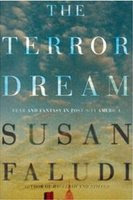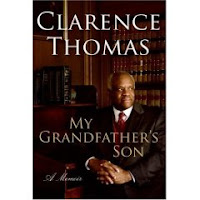 As Elizabeth Curtis reminds me, Judith Butler’s book, Precarious Life: The Power of Mourning and Violence, came out in 2005. The book begins, “Since the events of September 11, we have seen both a rise of anti-intellectualism and a growing acceptance of censorship within the media.” Uh huh. And I also hear it’s one of her more accessible ones.
As Elizabeth Curtis reminds me, Judith Butler’s book, Precarious Life: The Power of Mourning and Violence, came out in 2005. The book begins, “Since the events of September 11, we have seen both a rise of anti-intellectualism and a growing acceptance of censorship within the media.” Uh huh. And I also hear it’s one of her more accessible ones.
Thanks, Elizabeth, for the heads up!









